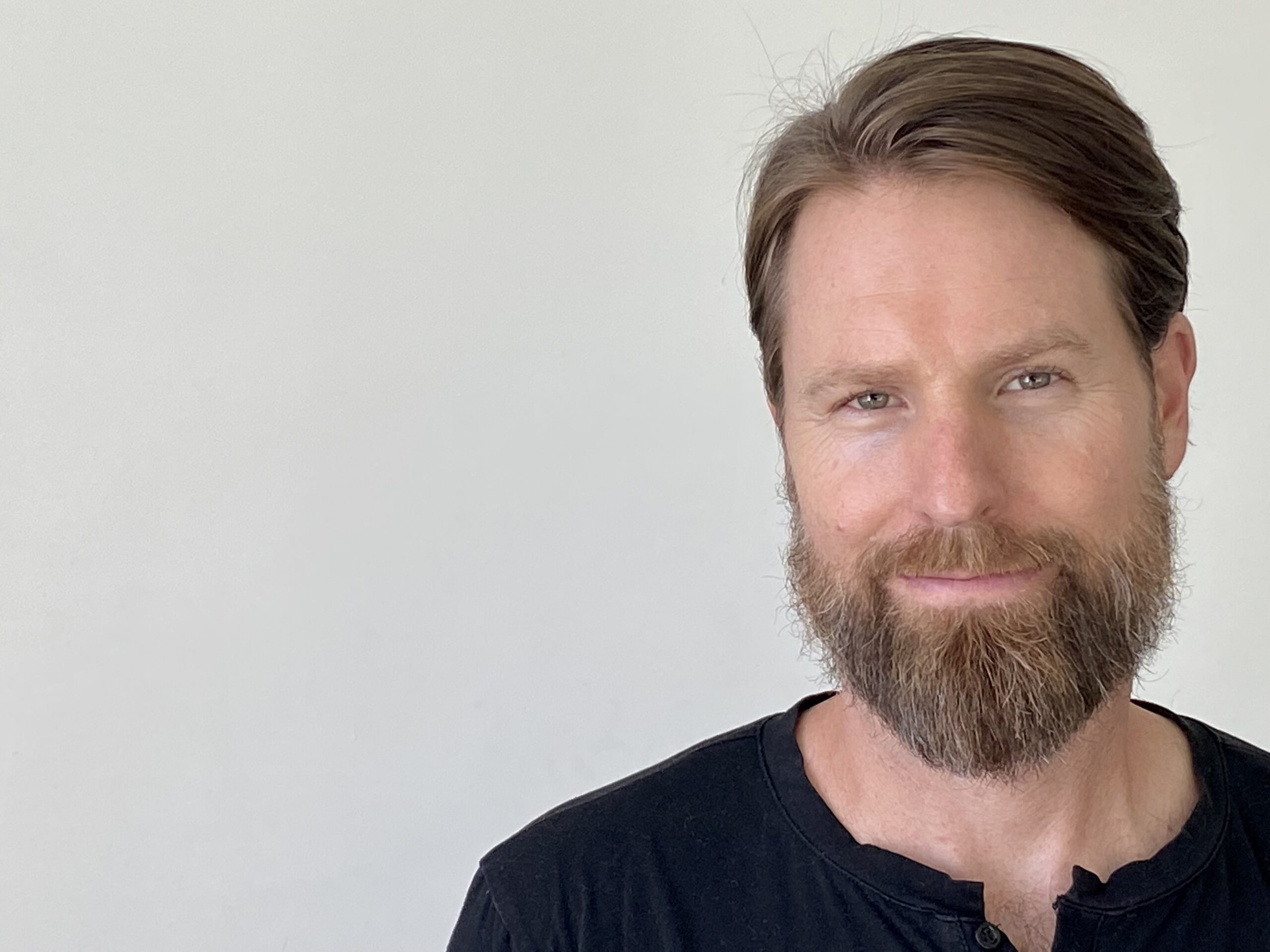Leadership Training with Cassa Grant
In a leadership position, but don’t feel you’re worth it? Cassa Grant shares a framework for leadership training that can help you overcome those feelings!
Listen to us On
About the Episode
LifeBlood: We talked about leadership training, how to think about and overcome imposter syndrome, why it’s ok to have alter dogs and how to make it happen, and how to live with greater intention with Cassa Grant, leadership coach for offbeat people.
Listen to learn why simply getting started is a massive step in the right direction!
For the Difference Making Tip, scan ahead to 18:58!
You can learn more about Cassa at CassaGrant.com, Twitter and LinkedIn.
Thanks, as always for listening! If you got some value and enjoyed the show, please leave us a review wherever you listen and subscribe as well.
You can learn more about us at MoneyAlignmentAcademy.com, Twitter, LinkedIn, Instagram, Pinterest, YouTube and Facebook or you’d like to be a guest on the show, contact George at [email protected].

George Grombacher
Lifeblood Host

Cassa Grant
Guest
Episode Transcript
Come on
life Whoa, this is George G. And the time is right. welcome today’s guest strong a powerful Castle grant kessa. Are you ready to do this?
Cassa Grant 0:19
I am. Thank you so much.
george grombacher 0:21
I’m excited to have you on. Cassie is a leadership coach who transforms offbeat leaders so they can communicate clearly get more buy in and feel great about how they’re spending their time. Again, excited to have you on cast that tell us a little about your personal life. It’s more about your work and why you do what you do.
Cassa Grant 0:37
Oh, boy, three questions. Okay. Yes. So I think Well, I live in New Zealand. So that’s a big part of my personal life. So I get to enjoy New Zealand and also connect with most of my clients are actually American. And it’s really fun. I love living here. I love having adventures. I’ve done a lot of traveling. I knew I wanted to travel a lot when I was young. And so I not that I’m super old now. But you know, when I was in my teens, and so I went ahead and did that. And it was amazing. But it definitely led me to kind of an offbeat, what I would call an offbeat background. And when I after I finished grad school, I was down in Antarctica working on and off for about five years and met my partner and then moved to New Zealand. So when I got out of Antarctica, I felt really unmoored. I felt like I really didn’t have a network, I really hadn’t kind of built my career in the way other people would. Or not everybody clearly, but it felt very disconnected. So when I started, that’s when I started coaching. Well, I started copywriting first. But then I moved into starting my own business, basically. And it was really powerful. I mean, I think you could probably attest to this, like, if you want to have a huge personal growth journey, start your own business, for sure. It brings up basically every single thing that can come up. So been doing that and loving it. But what what really, I knew I want I when I first started my own business, I thought What will people pay me for? They’ll pay me for a service, a skill, copywriting, I can write, I can figure this out, right. So I didn’t do that. But pretty early on, I knew I wanted to get into coaching. And it was leadership coaching, always call to me, because I’ve always kind of been in leadership roles, not necessarily willingly. But people say, Oh, she can talk and she’s bossy or whatever, I don’t know what they see. But they go, Oh, she’ll be good for that. And then you’re going, What the hell am I doing, I have no idea what I’m doing. And also, I feel like I’m not qualified, right? So. But throughout my life, I mean, I started, I was a teacher for years. And then I was an adventure travel bus driver, we did trips all through, actually, Arizona spent a lot of time there, all over the US and Mexico. So those types of leadership experiences. And then of course, what I did in Antarctica really helped me build a very flexible idea of what leadership is and should be, and helped me it helps my clients that way, too. Because when you’ve seen a lot of random stuff happen, when anything can happen, it helps you build that resilience. I mean, I think we all know that. But those experience definitely helped me put things in perspective a little bit more. I think that was all the questions. Is that right?
george grombacher 3:13
Let’s see, it was the personal life more about work, why you do what you do?
Unknown Speaker 3:18
What I do, I will say, Why do I do is I just like making people’s lives easier. You know, I mean, when I was in leadership, I was all about this system is dumb, let’s fix it. This this way of like this way of thinking is slow. Let’s try to figure out a better way, you know, and that’s what I love about coaching and leadership is helping people identify those areas where things are not going really the way that they want them to go. So what what do you do about it? You know, do you just sit around and let it stay that way? Or do you figure out a way to fix it, you know, or the, to the best of your ability? Fix it right? So yeah, that’s, that’s why I do what I do.
george grombacher 3:52
Is that really what leadership is?
Unknown Speaker 3:55
No, I think leadership’s about inspiring people and helping them buy into not having buy in such a weird way to talk about it. But I do think if people really get it when you say buy in, but I think it’s about inspiring people by being enthusiastic about the thing that you’re doing. I think that’s what leadership is
george grombacher 4:12
doing, being enthusiastic about the thing that you’re doing. How does does that apply for, for me leading in my own life as well?
Unknown Speaker 4:23
Agree? Yeah, absolutely. I mean, and that’s, I mean, I do kind of broaden my, you know, idea, because what a leader is because if you’re leading yourself, you’re a leader, right? It’s a matter of, you know, there’s of course management skills, and that’s, that’s hard skills, and that kind of thing, but leadership, I think is more of a soft skill where you need to be able to understand a how to lead yourself towards the things that you think are going to be better, like better. And that could be any number of things. It could be personal, you know, I’m leading myself to a better nutrition system, you know, better or better health health system, or it can be leading people in a way that you’re like, you know, I think this is going to make things better and so I want to help this happen. And so if you can’t inspire people to do that, you know, you’re not gonna they’re not gonna, they don’t see the point they don’t they don’t want to do the thing that you’re asking them to do. And then things don’t really change.
george grombacher 5:14
Yeah, it does. It does. I had the opportunity to listen to like a, like, he was a fighter pilot. And then he flew in like the Blue Angels or whatever. And they talk about how if you screw up just like a tiniest little piece, everything literally explodes. And he said this phrase, he said, You can’t transfer what you don’t own. And that’s kind of what jumped into my head when you were just explaining that.
Unknown Speaker 5:37
That’s exactly right. That’s a perfect way of putting it. Yeah. Because it’s true. And you people can sense that, even if it can’t put their finger on why? If they know, I mean, basically, that you’re full of it. Or if the thing that you’re trying to push really doesn’t do the thing that you say you’re trying to do. You know, that kind of the lack of it. I mean, I wouldn’t say people are doing it out to setting out with a lack of integrity by any stretch, but it’s, it is a lack of integrity, your words don’t match with your actions or people like that people can put their finger on that and that, and then they they don’t want to be followed. They don’t want to follow you. I mean, I would also say there’s other of course, there’s other aspects of leadership. But it’s I think, number one is that coming down to that inspiration, and that can be done in so many ways. That’s why the offbeat leader thing, the way I work with, I say that I work with offbeat leaders, but I work with people who maybe come to leadership in a non traditional, I’m doing air quotes way of I don’t have an MBA, maybe I you know, kind of moved up into this role. I didn’t see myself as someone who was going to be a leader. And now I am and I really like it, but I feel really uncertain. What am I doing that kind of thing. I mean, we all feel that to a degree. So definitely deal with a lot of imposter syndrome.
george grombacher 6:51
And that’s, I think it’s probably impossible to not have that kind of uncertainty or imposter syndrome, who am I to be doing this as we’re getting started in a new role of any kind of trying something new, and then it’s even when I’ve been doing it forever? That’s probably there’s there’s a little bit of that. So how do how, how do we remedy that? How do we get rid of imposter syndrome?
Unknown Speaker 7:21
I mean, I think there’s a couple of different ways like one of which I mean, I actually just contributed a chapter to a book called activate your life three, and it’s a book of coaching exercises. And in that book, I talk about the idea of Alter Ego. So Todd Herman totally wrote this amazing, very comprehensive book about how to use alter ego. So that is one way to do it. It’s not fake it till you make it, it’s stepping into a part of yourself that you feel like you can actually be, which I know sounds a little bit nice to Tarik. But instead of pretending you kind of go okay, what would supercast to do? Or what would, you know, I use my grandma, which is, I mean, nobody knows, like, I don’t want people too, but I, you know, she’s not famous. But I used to, I used to use Judge Judy, as when I was a teacher of like, okay, I didn’t, I felt I was 23 of teaching high schools, or I’m only like, four years older than these kids. And I didn’t know how to act. So I would be Judge Judy. But that actually really helped me a lot. So that’s one way to start. Not like said not faking it, but start embodying what you think that person might do, how that person might make a choice how that person might act. The other thing is, just get out there and do it, you know, take little baby steps. And, you know, one of my favorite mentors says confident competence breeds competent confidence. So you have to be able to do better, you get a little more competence, then you get a little more confident. And I think that that’s where people, a lot of people, I mean, imposter syndrome and analysis process kind of go hand in hand, a lot of times, right, people get stuck looking at what’s the best thing, I don’t want to mess it up. I have to, you know, really research everything. Like, I’m in grad school and writing my thesis, it’s like, no, you don’t just take a little step pivot if you need to keep moving. Right. So I think that’s one of the best ways to deal with imposter syndrome. And also, just give yourself a little grace, you’re gonna screw up, it’s okay. Like, we all do. It’s okay. Like, I’m not saying like, Don’t aim for excellence, but I think people can be really, they, they’re much harder on themselves than they would ever be on anybody else. And we I mean, we all experienced this. So having that kind of little bit of extra kindness for yourself in these endeavors, I think can be really good, too.
george grombacher 9:31
Yeah, I think that that’s really well said, like, we live in a time where we need to give ourselves a lot of grace and certainly nice to extend that to others. I think that there’s a lot of wisdom. I like the idea of having having an alter ego, because I’ve certainly done that. I probably still do and that’s that’s something that that we eventually as we’re doing that as we are as we are competence breeding confidence then And then then we find our own path. And the alter ego, eventually just kind of becomes, it’s not that we become the alter ego, it’s just that we step into our worth as leader.
Unknown Speaker 10:13
Exactly. And that’s exactly right. Like those traits that you feel like you’re not being right now you will start to be because you’re just practicing it that’s kind of tricking your brain. I mean, I’m really I do neuro linguistic programming, and it’s all about the subconscious. And so it’s like, you kind of have to trick your brain sometimes. And I’m not trying to, you know, make people feel like they’re schizophrenic or something. But it’s a way of tricking your brain into building that commitment to yourself understanding that as you do it more, you can rely on yourself more that kind of thing and seeing that evidence to, because even if the alter ego did it, you still did it too. And that builds that evidence in your mind, which then builds the confidence. Yeah.
george grombacher 10:52
What a weird Brain Stuff that
Unknown Speaker 10:55
to be drawing pictures.
george grombacher 10:58
And that is, I mean, I think sometimes people think, Well, that sounds really weird. I’m just pretending to be somebody that I’m not. But your brain doesn’t necessarily, if you’re telling it something, you are essentially creating the version of yourself that you’re interested in becoming right now. I probably said that way wrong, but
Unknown Speaker 11:20
that’s exactly what it is. And I think that the way that I ask people, it’s kind of like, well, what would this so if we’re in coaching sessions, for example, one of my clients actually, she’ll be happy to share this because she’s in the book, but we first of all, would you start with archetypes, too? So this the idea of Carl Jung’s archetypes of like the warrior, the caregiver, the magician, those can really help people tap into what that person would do, right? So we can kind of use those as a as a springboard. But then, so she, she’s sparkly Joe, that’s her her alter ego. And when we’re in coaching sessions, and she has a dilemma, or oh, I just don’t know if I want to do this and done it. I said, Well, what would sparkly Joe do? That’s literally all you have to ask. And then people like just like that right into it. Oh, yeah. You know what, she wouldn’t do that. And I do that on myself all the time, actually. Because it’s just like, whenever you’re getting into making excuses, whenever you’re getting into not being that best version of yourself, it just pulls you right out really quickly.
george grombacher 12:16
Yeah. What would sparkly Joe do? Love it. Probably something awesome.
Unknown Speaker 12:22
She was.
george grombacher 12:25
I don’t know that, that I see too many of those. What would Jesus do bracelets around anymore, but there was a time where they were just absolutely everywhere. And looking back on that now. I don’t know that I thought it was dumb at the time. I’m just being honest. But now knowing what I know, I think that there’s just so much wisdom in that. And having that sort of reminder on on my wrist of okay. How would XYZ version of me respond to the situation? It’s just a constant trigger, to bring ourselves to that state?
Unknown Speaker 12:57
Exactly. And that’s what they were tapping into in a really concrete way. Yeah, absolutely. And that’s a really good analogy. You know, that’s a definitely a good example of that.
george grombacher 13:08
So, how, how long? If I’m intentional about this? And it’s, you know, the answer is probably going to be it’s certainly depends on on its relative. But if I am really suffering from imposter syndrome, it’s like really bothering me and I’m in a leadership position, I need to accelerate this. How How, how fast? Could I accelerate that?
Unknown Speaker 13:31
You mean, John, yourself out of the imposter syndrome?
george grombacher 13:34
Yeah. Overcome? Yeah.
Unknown Speaker 13:36
It does depend it it definitely depends on a lot of things, right? Because sometimes imposter syndrome is actually mental health. So if it’s if it’s a really deep imposter syndrome thing, that is definitely a mental health, that I encourage people to get support for that. But if you’re kind of running it, like run of the mill imposter syndrome, like there’s no you know, you don’t be haven’t identified a mental health issue. Depending on the person, you know, I’ve seen people turn it around within four or five sessions. Oh, so that would probably three months if that, like and, and, you know, I’m not saying that they’re all of a sudden, magically, like, I’m a super leader. But getting those concrete that concrete in touch with who they really are. And then also how those that that really affects the people. I mean, it feels a little bit silly, because it’s like, getting in touch with your values, getting in touch with your purpose, understanding your strengths, and then moving from there with concrete action steps is so powerful for people and it feels really simple, because I mean, I’ve done it for years now. But it’s amazing to me how much that really bolsters people’s confidence. They remember what it is about them that makes them important, instead of kind of, you know, going for the negativity bias all the time. So just even just doing those three sessions has been really powerful for a lot of my clients, and then also getting out of victimhood. You know, you probably hear this a lot on your show like I mean, some Times imposter syndrome does stem from a poor me attitude. And it’s really hard to see when you’re in it. But when you start working through this stuff, you can start to start to go, you know what, yeah, actually, I can change this. It’s not somebody else’s fault, or, you know, here’s how we’ll change it. Because that’s what coaching is all about is identifying the thing, shifting the belief, and then moving into action based on who you want to be, and how you want to show up. So yeah, I think if you’re willing, and you’re doing the work, absolutely, people can definitely change that. And it’s like, they’re not gonna be perfect, but they’re definitely gonna be moving in the right direction pretty quickly.
george grombacher 15:33
Yeah, yeah, I think that makes a lot of sense. And that’s really good stuff. I think that the more intention, but the more we can live intentionally and set the intention that I’m interested in overcoming this, and then doing the work doing work towards and thinking about it and giving it attention is maybe it’ll work itself out, maybe, you know, hopefully, but if it’s something that you’re serious about having that, that that framework, and that structure of this is where I’m going to go, this is the kind of person or leader I’m interested in being becoming. And then taking those steps. I think that is the recipe for success.
Unknown Speaker 16:09
I think so. And I’ve seen, I’ve seen it work really well. So that’s partly why I also have a bias. But yeah, I mean, the thing of it is, I mean, there’s a story, like there’s this analogy of like a guy walking down the road, and he sees a fellow on the porch on his house sitting on the porch and his dog sitting next to him. And it’s like, just howling and crying and whining, and the guy’s like, Hey, man, what’s wrong with your dog? He’s like, Oh, it’s, you know, it’s sitting on a nail. It’s like, well, why doesn’t it move? And it’s like, what would hurt too much to get off the nail? Right? And that’s where a lot of people can be right? They know that things are not great. But they’re like, it’s gonna hurt too much to change it. So you know, it’s just getting off that nail and then going through that pain, but then moving into, I’m not saying it’s necessary to always be pain free, but a less painful existence. By making that taking that action, I think is the, that’s the hardest part is getting over that in, you know, the lack of momentum, basically.
george grombacher 17:05
Yeah, you know, pay now or pay later, kind of a thing.
Unknown Speaker 17:10
That is exactly right. And especially with leadership, especially if you really do want to advance your career in that direction. I’ve seen that many times where, you know, you need to go from having a depth of knowledge to having a breadth of knowledge. And that’s really scary for people, especially as they continue to move up, they continue, they start to fall back into what they know, and what they’re good at what they feel like they’re good at. But getting intentional, especially, I mean, it’s not even so it doesn’t have to be right when you’ve moved into a new role. But that seems to be a catalyst for a lot of people, or they’ve had like a shake up with, you know what, this is just not who I want to be, we’re seeing that a lot with a great resignation, people are going you know what, this is not the job I want, or this is not the how I want to be in the job. And so they have to start thinking of themselves and their new identity. And that can be really challenging.
george grombacher 17:53
Yeah, for sure. All these things are potential opportunities, right? Something crappy happens, you get laid off, it’s an opportunity, or you just become unhappy, or you become a parent, or you get thrust into a leadership role, or you accept a leadership role, and you’ve never been in that role before. You know, from my experience, it really does require that you take massive action on this stuff. Because, you know, just because you’re all of a sudden in a leadership role does not guarantee that you’re always going to be in that leadership role, unless you have, you know, the proper performance and all that good stuff. So, but I’m just an advocate for like, you changing my situation. And, and, and, and doing what it takes to make that happen. So that’s what I encourage other people to do as well.
Unknown Speaker 18:35
Yeah, when ultimately, I mean, this is gonna sound very cheesy, but I do think what’s the point, if you’re not trying to make yourself happier? You know, if you see that you’re unhappy in certain areas. You know, it’s worth it to try, I think, because you can be happier, it’s just gonna take a little bit of effort, you know,
george grombacher 18:52
amen. Cast off, the people are ready for your difference making tip. What do you have for that?
Unknown Speaker 18:58
Well, I mean, I think I’ve probably said it multiple times throughout the show, but just get into action. If you’re worried about something if you feel like you need to try it. If you feel like you’re not sure, just start doing one little baby step thing towards the direction of that you think you’re headed and it doesn’t have to be perfect. It doesn’t have to be big, just that little baby step to test pivot if you need to that kind of thing. That’s the number one thing I see people struggle with is just doing that one little thing. And then it starts to build the momentum. Right? So getting getting into action that way I think is going to be the thing that really makes a difference for a lot of people.
george grombacher 19:30
Well, I think that that is great stuff that definitely gets a cop Come on. Thank you so much for coming on. Where can people learn more about you? How can they engage with you?
Unknown Speaker 19:40
Yeah, so I My name is it’s kind of a funny name. It’s a road in Wyoming but it’s ca SS a grant GRE NT at Castle grant.com is my website. And then I hang out a lot on LinkedIn and I’m kind of building Instagram right now. So you can find me there. It’s just at Castle grant. I definitely will connect with Do I love finding new people on LinkedIn? So please come Come find me there. And that’s pretty much it. Like my website has some resources for people if you feel like you’re at offbeat leader and you’d like to own that more or if you live what would you improve your storytelling skills I have a lot of different freebie downloads on my website and the resources page. So they’re welcome to come check those out.
george grombacher 20:21
Love it. Well, if you enjoyed this as much as I did, so cast your appreciation and share today show the friend who also appreciates good ideas, go to Kassa grant calm that’s cassagrant.com Find her on LinkedIn, Instagram as well and take advantage of all the great resources that she’s got available. Thanks concasseur.
Unknown Speaker 20:41
Thank you so much, George.
george grombacher 20:43
And until next time, keep fighting the good fight. We’re all in this together.
Transcribed by https://otter.ai
More Episodes
Financial Wellness in the Workplace: 401(k) Plans
This is so important; if we don’t save money for our retirement, no one will bail us out. This is so powerful; we get so many of our most important benefits through our employers. This is so time sensitive; we need to get started saving and investing for our...
How to Take Personal Responsibility for Your Money and Get Your Finances in Order
People have all kinds of financial goals. Some want a Ferrari and a mansion, some want to take nice vacations every year, and others want to get out of debt so they can stop stressing about money. Whatever your goals, I want to help you take personal responsibility...
Effective Persuasion: Am I Referable?
Referrals are the best. They’re the best way to meet new people. Look at this list and decide if you’d rather be introduced to the person through someone you like and trust, or to pull them out of the yellow pages or Google search:...
Want a Life of Significance? Embrace the Gift of Fear
Living a life of significance has certain requirements. It requires you to step out of our comfort zone. To embrace change and adversity. To become a person of action and a wise decision maker. And all of those things require you to embrace the gift of...
Who Am I? How to Write Your Next Chapter
I’m not intending this to be an existential conversation where you question your place in the universe. What I’d like it to be is the catalyst for you to start doing that thing you’ve been wanting to start doing. To help you lean into the question of “Who am I?”...
Financial Wellness at Work: The Underlying Strategy
Getting people to take beneficial action is puzzling and difficult. It’s clear cigarettes are bad for us, yet many still smoke. Most people understand it’s valuable to spend less than you make, yet a majority live paycheck-to-paycheck. To help...
Want a Life of Significance? Make Yourself Strong
Just getting by can be difficult. Becoming a success is challenging and admirable. Living a life of significance requires extreme focus, inquiry and consistent work. It’s available to all of us, but something too few aspire to. What would the world be like if...
Succeeding in Life: Stop Wasting Time
We all have enough time to do just about anything we want. We can start businesses, open a restaurant, become painters, or learn how to play pickleball. But we don’t have time to waste. If you’re interested in succeeding in life, you’ve got to stop wasting time. ...
7 Prioritization Tips for Better Time Management
A big part of prioritization is proactively making decisions about what’s important and should be paid attention to, as well as what is unimportant and should be avoided. It’s knowing the highest and best use of your time, and working to spend as much time as...
Join the show.
Interested in being on the show? Tell me a little bit more about you and what you’d like to talk about!












